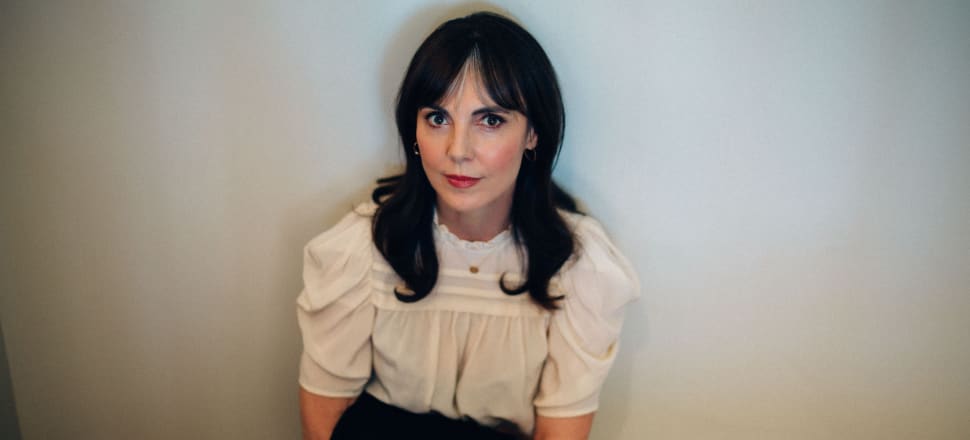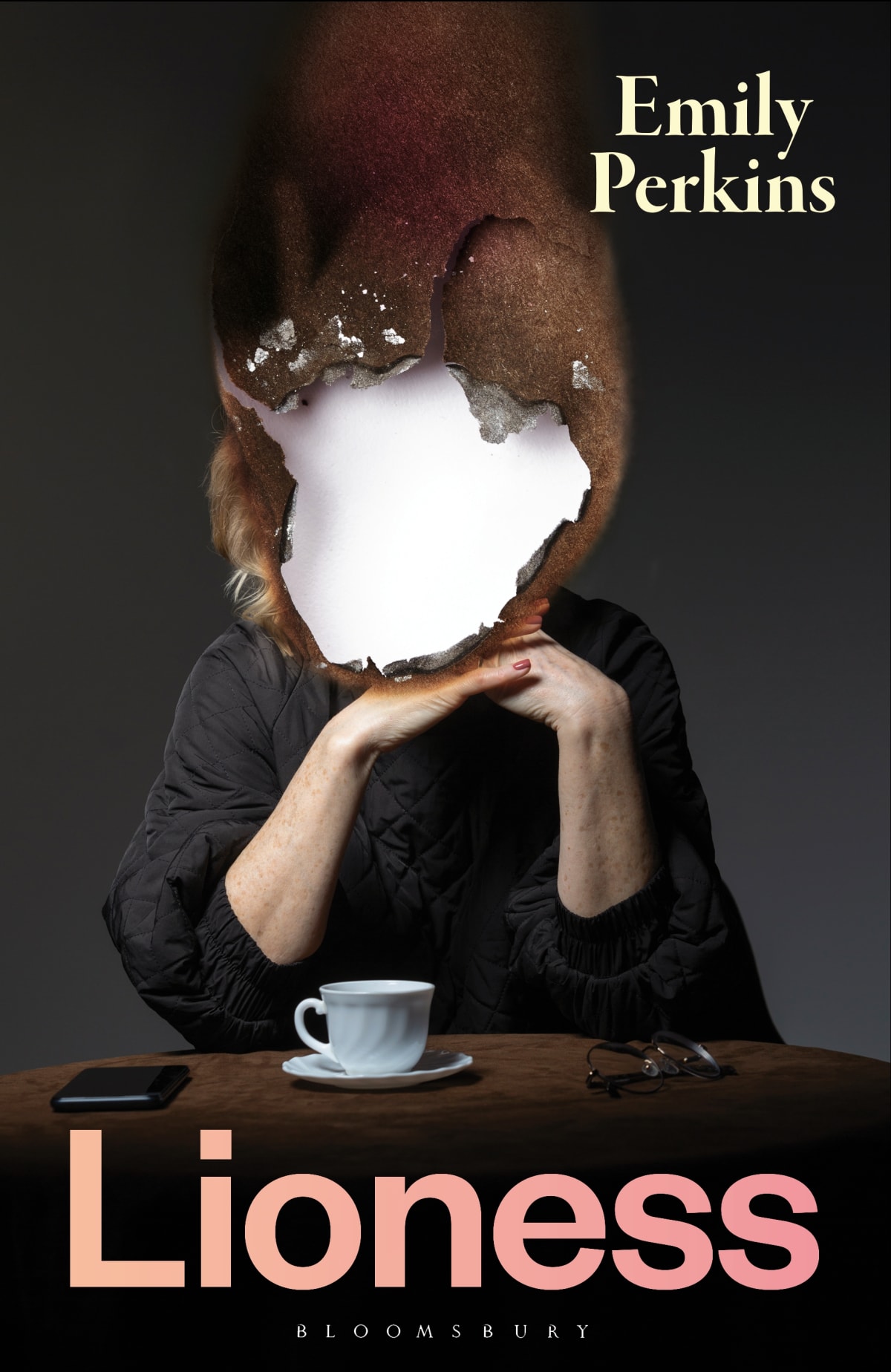
In her first novel in 10 years, Emily Perkins interrogates "your perfect Chelsea Winter life"
Halfway through reading Lioness I texted a friend: "reading the new Emily Perkins book! can’t help but feel empowered, grrrowl". Further in, however, my roar was fading, and by the end of the book it had become a whimpery meow. I’m still not sure how I feel about the book. I know what I think - it’s beguiling and ferociously intelligent - but mostly what I feel is numbed or maybe stunned. What starts as gentle pawing at neo capitalism and failed feminism turns out to be a brutal disembowelment.
Early on in the book, over Christmas in the family’s Marlborough Sounds holiday home ("a double-fronted, two-storey villa with wraparound verandahs on both levels"), narrator Therese’s adult stepson Rob, who works for the Greens, puts his foot through a rotten verandah board and gashes his shin. It’s a neat metaphor for the twin plots of the book - Therese’s identity crisis and what develops into a Serious Fraud Office investigation into her husband Trevor’s property-development business – both of which are concerned with integrity and the collapse of a well-established ‘front’. Lioness wrestles with questions of authenticity and meaning, particularly for upper-middle-class women. Put your foot through the facade of your Chelsea Winter life, and what will you find?
The narrator is Therese Thorne of Wellington, nee Teresa of Hutt Valley, who owns a successful upmarket homewares franchise, Therese Thorne Homewares. She got her start young thanks to the much-older, much-wealthier Trevor, who became her first investor and, soon after that, her husband. "First the brand had become Therese Thorne, then I did," reflects Therese.
She is less enthusiastic about this than she used to be: "Over the years Trevor, his children, and then grandchildren had appeared with me in advertising campaigns, the seasonal newsletters and later in the website’s blog. Therese Thorne Homewares portrayed an artfully imperfect life, illuminated by pontoon lights, outdoor candles and shafts of golden sun. It was fresh flowers cut from the garden, a jumble of sandshoes by the door, long grass weighted down by dew. Rugs, cushions, wall hangings in neutral colours. Homemade crafts, cupcakes, gratitude boards. It sold the fantasy of time to read poetry and handwrite letters, to women who scrambled to make it through the day without braining themselves on a desktop paper spike, and mini versions of the same fantasy for their daisy-chained daughters."
Therese is now almost 50, Trevor in his 70s, and they have been happily married for many years, living in their Wellington penthouse apartment (when not at one of their other homes.) Therese fits in – just – with Trevor’s four children, grandchildren, ex-wife, and a lot of money, and while she’s arguably stuck in a domestic/carer/provider role (she’s often preparing food for the family or tending to wounds), she's got everything she wants, or so it seems.
At the book’s outset she's in Sydney, scoping sites for the first Australian branch of her store. When Trevor finishes his last major project, a Wellington waterfront hotel currently under construction, they plan to move there. But on the day of their annual Christmas party, an article appears in the paper: "Council links trigger hotel investigation". The foot is coming down; will the board hold?
The couple still host their now excruciatingly awkward party, but work on Trevor’s hotel is stopped, and the extended family begins to navigate the ensuing financial fallout in a series of Succession-esque meetings. There’s an enormous amount of money at stake, as well as reputation. But while Therese is embarrassed, she doesn’t seem overly concerned. This is partly because she can’t believe Trevor would ever do anything wrong – she’ll stand by her man – but it’s more because she is increasingly distracted by her downstairs neighbour, Claire, a woman who "used to be in film" and has a pair of fake stone lions, leftover props, on plinths in her apartment.
We first meet Claire hovering on the edge of Therese’s consciousness while she’s having sex with Trevor in Sydney. Therese is haunted by their last encounter, when Claire stopped in the hallway to share a sex dream involving Therese’s husband that she has no discomfort in relaying, until the last minute when "alarm crossed her face, as if she’d remembered normal behaviour." Claire asks Therese if she’s offended her. “I don’t know why I told you that. I seem to have lost my filter." It’s exactly this loss of a filter that piques Therese’s curiosity.
Claire has stopped taking her antidepressants, swapped domestic roles with her husband, who has moved to Auckland with their daughter, lost or quit her job. Soon she’s shedding more layers: clothing, furnishings, cosmetics, possessions. In the midst of this process, two accidental Albanian houseguests help her build a stage in her apartment. Yes, an actual, physical stage. It’s unclear why, or what for, but it’s there and is not, as far as I can tell, some kind of clever metaphor for something else.
Claire has seen through it all; the bullshit creams and narratives that stretch and pin women on society’s mounting board. The entrenched patterns that turn bright young women, like meat on a spit, into gristly leftovers
Claire throws a party to introduce her new stage. She dresses up ("her clothes had the air of a costume") and announces it’s the last time she will be doing so because she is saying goodbye to her old self. "I’ve been distracted by bullshit all my life," she tells her audience. Therese believes she is speaking directly to her. Early the next morning Therese finds herself dancing on the stage with Claire and experiences a kind of epiphany, in what she begins to think of as "the zone". Therese is more than curious about Claire by this point: she is entranced.
At this point, I was too. Aside from an odd four-page first-person interlude, we see her through Therese’s eyes, and she seems to have answers – cures, revelations even – for the crises of middle-age middle-class womanhood which Lioness interrogates; the Therese Thorne myths of dining table settings and cushions, yes, but more importantly, the fucked-up gendered power dynamics that we pretend are not there until we hit 40 and that Perkins rips open. "You’re nothing next to a man, you’re not even real in this world,” Claire tells a group of young women. "Even if you are a rich white lady whose power depends on the subjugation of others, in this world you’re still not as good as a man."
Claire has seen through it all; the bullshit creams and narratives that stretch and pin women on society’s mounting board. The entrenched patterns that turn bright young women, like meat on a spit, into gristly leftovers. This will not be Claire’s fate. She has covered all the mirrors in her house. She has given away all her worldly belongings. She wears a polyester tracksuit from an op shop. She has built a stage and she has created "the zone", an almost alien space in which, through dancing and music, one can truly be free – or so Therese believes. And we believe. Yes! Through Claire and her zone, Therese will be saved, found, freed, redeemed, able, finally, to be herself.
But then a girls’ weekend away, just the two of them (the sexual tension mounts), at Therese and Trevor’s sumptuous Martinborough villa, is gatecrashed by Therese’s stepdaughter and a group of her female friends who thought no one was using the place, and the ‘real real’ Claire emerges. The younger women decide to stay, and they all have some fun drinking, or not, before winding down into a cosy fire-side talk, piled with blankets. Bad idea. The mask which we thought was off, really comes off, as Claire lets rip "out there on the other side of acceptability, kicking up the sand under her blazing sun" with her opinions, including a misogynistic rant against natural birth directed at a heavily-pregnant woman who "can’t wait to put ‘mama’ on her profiles."
Women with stuff to do, like Claire’s solo-parenting sister Melissa who is busy with "the money job and the compost and the car rego and the emotional support", perhaps don’t get as angsty about authenticity
Perkins has set herself a challenge with her narrator. It’s hard to feel sympathy for the midlife crisis of a woman who owns multiple multimillion-dollar homes, or even for her new friend who is supposed to be more down-to-earth but who still maintains an inner city Wellington apartment and presumably another home in Auckland where her husband and daughter are living. This is unfathomable riches to most of us. I teetered between empathy for Therese, and irritation at her indulgent soul-searching - more often the latter, if I’m honest. Women with stuff to do, like me, and like Claire’s solo-parenting sister Melissa who is busy with "the money job and the compost and the car rego and the emotional support", perhaps don’t get as angsty about authenticity. At one point, in a moment of wanting to throw it all off, Therese picks up her dinner plate and licks it, much to Trevor’s horror. But why? Is there anything besides the performance?
There are an alarming number of accidents and dramas. A terrifying plane landing in which oxygen masks drop, a car accident, the foot through the verandah, a near drowning, a wind storm resulting in a shattered window, broken glass below resulting in a cut foot, a break in, a near house fire, a man’s collapse and ER visit, lost children in Te Papa. In this wickedly funny scene, nothing much happens, but when the three generations of women ("if you think about the sacred feminine we’re all represented" says Fern, a younger woman obsessed with healing oils) get their existential claws out, the diverse failures of feminism are quietly ripped apart. No one emerges unscarred, and it’s clear that nobody has any answers, not even Claire.
The book’s success rides on this. It doesn’t deliver a message, but instead pokes holes in all the rotten messages, including Claire’s. A highlight of reading the book is seeing a writer this good wrestle with material this complex. Lioness by Emily Perkins (Bloomsbury, $36.99) is available in bookstores nationwide.








